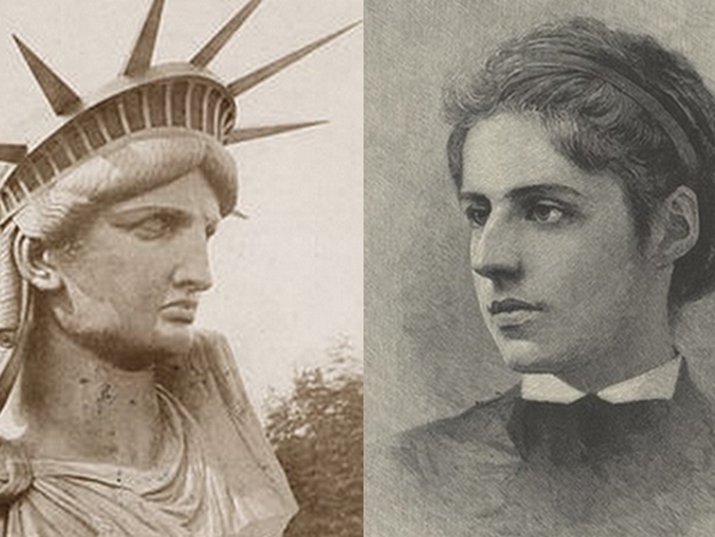Poetry of
Lady Liberty
THE NEW COLOSSUS - 1883

The New Colossus, featuring the voices of Liberty Island visitors.
Not like the brazen giant of Greek fame,
With conquering limbs astride from land to land;
Here at our sea-washed, sunset gates shall stand
A mighty woman with a torch, whose flame
Is the imprisoned lightning, and her name
Mother of Exiles. From her beacon-hand
Glows world-wide welcome; her mild eyes command
The air-bridged harbor that twin cities frame.
“Keep, ancient lands, your storied pomp!” cries she
With silent lips. “Give me your tired, your poor,
Your huddled masses yearning to breathe free,
The wretched refuse of your teeming shore.
Send these, the homeless, tempest-tost to me,
I lift my lamp beside the golden door!”
-Emma Lazarus
November 2, 1883
HARBOR - 2019
Tracy K. Smith
Stranger, I find myself lost. Let us watch this new age gather
Overhead. Let’s see what rains onto unaccustomed skin.
Once, we were pelt, fur, hide. Only the seasons mattered. Now,
We shiver, crying out. Not from winter, but the fear in skin.
I see the tall masts of history in horizon fog. They dip
And rise. The tides they ride swell under human skin.
Be my guest. Drink tea, taste fruit and bread. The meat rests,
Cooling on the slab, but see how wine has flushed our skin?
This land you’ve sought is peopled with enemies and kin.
You’ll learn to read the whole long story written on skin.
We passengers wait. Our restless waiting forms an island.
One woman stands, sings. Her music enters through my skin.
Stranger, you’re the words to a hymn I’ve only ever hummed.
Come. Let’s erase the distance between skin and skin.
-Tracy K. Smith
United States Poet Laureate, 2017-2019
The Statue of Liberty-Ellis Island Foundation is grateful to Liberty Mutual, an integral partner in creating the Statue of Liberty Museum, for this unique gift. Commissioned by Liberty Mutual, “Harbor” is a ghazal-form poem of hope that seeks a sense of communion and community across all forms of difference. It celebrates what Lady Liberty means to the world today in the same vein of Emma Lazarus’ “The New Colossus” written in 1883.